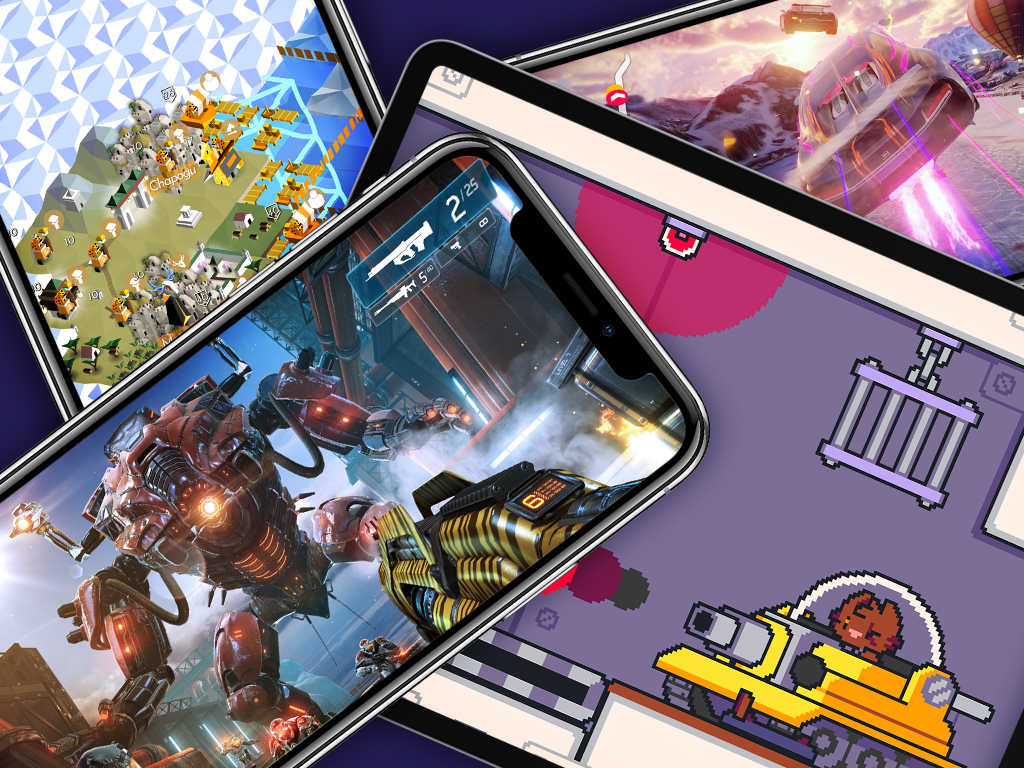Humanity is a complex and multifaceted concept that has been explored throughout the ages by philosophers, scientists, and artists alike. It encompasses our collective experiences as human beings – our struggles, triumphs, joys, and sorrows. In recent years, the world of gaming has taken up this challenge to explore what it means to be human in new ways through interactive experiences that engage players on multiple levels.
Game Humanity is an emerging genre of video games that seeks to delve deeper into the complexities of human nature. These games are designed to tap into the fundamental aspects of being human such as empathy, compassion, love, loss, and purpose. Through engaging narratives and gameplay mechanics that challenge players’ perceptions about themselves and others around them, Game Humanity provides a unique opportunity for gamers to explore their own humanity in a safe yet immersive environment.
This article will examine some of the most prominent examples within this genre while exploring how they push boundaries in storytelling mechanisms compared to traditional forms like movies or literature. We will also discuss why these games have become increasingly popular over time with audiences across all age groups worldwide who seek more than just entertainment when picking up their controllers or keyboards – but rather meaningful interactions which reflect upon real-world scenarios from different perspectives ranging from cultural diversity issues too sociopolitical turmoil’s surrounding us today.
- The Evolution of Game Humanity: From Concept to Execution
- Understanding the Psychology Behind Game Humanity Mechanics
- Ethical Implications of Using Real-Life Tragedies in Game Humanity
- Analyzing Cultural Representation in Game Humanity Narratives
- The Role of Empathy and Emotional Intelligence in Gaming through Humanitarian Efforts
- Leveraging Technology for Positive Social Impact: A Case Study on Game Humanitarianism
- Examining the Use of Gamification Techniques to Promote Pro-social Behavior among Players
The Evolution of Game Humanity: From Concept to Execution
These early games provided a platform for players to interact with each other and engage in strategic thinking, forming the foundation for future developments in game design.
With the advent of computer technology, video games became increasingly popular and complex. Game developers began incorporating artificial intelligence (AI) into their designs, allowing computer-controlled characters to exhibit human-like behavior and decision-making abilities. This marked a significant milestone in the evolution of game humanity, as it allowed players to immerse themselves in virtual worlds that felt more realistic than ever before.
More recently, advancements in virtual reality (VR) technology have further blurred the lines between real life and gaming. VR allows players to physically interact with digital environments using specialized equipment such as headsets and motion controllers. This has led to an entirely new level of immersion within gaming experiences, where players can see themselves inside the game world and feel like they are truly part of it.
As we continue on this trajectory of technological advancement, it is safe to assume that game humanity will only continue its evolution towards even greater levels of realism and immersion. The potential applications for this technology extend far beyond entertainment alone – from education to medical therapy – making this a truly exciting time for both gamers and those interested in cutting-edge technology alike.
Understanding the Psychology Behind Game Humanity Mechanics
These mechanics are designed to evoke emotional responses from players, affecting their decisions and actions throughout gameplay.
One key psychological concept behind game humanity mechanics is empathy. Empathy refers to our ability to understand and share the feelings of others. Game designers use this understanding of empathy by creating NPCs that exhibit human-like behavior, such as expressing emotions or reacting to player choices. This allows players to develop an emotional connection with these characters, influencing how they interact with them.
Another important psychological factor is social identity theory, which explains how we form our sense of self based on group memberships and social interactions. Game designers often use this theory by giving players the opportunity to join groups or factions within a game world, allowing them to feel a sense of belonging and identity within the game’s community.
Overall, understanding the psychology behind game humanity mechanics can help developers create more engaging games that connect with their audience on a deeper level. By leveraging concepts such as empathy and social identity theory, designers can craft experiences that are emotionally rich and highly immersive for gamers around the world.
Ethical Implications of Using Real-Life Tragedies in Game Humanity
While some argue that incorporating such events can add a sense of realism and emotional impact to the game, others highlight significant ethical concerns.

One major concern is that using real-life tragedies for entertainment purposes can be insensitive and disrespectful to those affected by these events. It may also trivialize the severity of these tragedies and desensitize players to their actual impact on society.
Moreover, portraying sensitive topics like war crimes or terrorism could have serious implications on global politics and international relations. Such representations might perpetuate harmful stereotypes or misunderstandings about different cultures, religions, or nations.
As game developers strive for authenticity in their storytelling approaches, they must weigh the ethical implications carefully before deciding whether to incorporate real-world tragedies into their work. They should ensure that any use is done with sensitivity and tact; it should not be exploitative but rather serve as an educational tool for players to better understand these events’ complex nature. Developers also need to consider legal issues surrounding copyright laws when creating content based on true stories or historical facts. Ultimately, responsible representation requires thoughtful consideration of how best to balance creative freedom with social responsibility towards our shared humanity’s collective history.
Analyzing Cultural Representation in Game Humanity Narratives
Cultural representation refers to how different identities, cultures, and social groups are portrayed in games. The narrative of game Humanity involves the depiction of human history from ancient times to modern-day society. This narrative presents an opportunity for analyzing cultural representations because it touches on various aspects of human life such as civilization, culture, politics, economics, religion among others.
To analyze cultural representation in game Humanity narratives effectively requires one to consider diverse approaches such as semiotics analysis, gender studies approach or postcolonial analysis. Semiotics provides a framework for examining the use of symbols and signs used in the game to represent different cultures and societies. Gender studies offer insights into how gender roles are represented within the context of societal norms and expectations while postcolonialism can give insight into power dynamics between different societies depicted in-game humanity.

In conclusion, analyzing cultural representation in game humanity narratives is important because it helps us understand how certain types of people are being represented within video games which have a significant impact on players’ understanding worldviews both positive and negative effects. Using many interdisciplinary approaches enables researchers to examine deep-seated issues surrounding identity-based discrimination while at the same time promoting deeper knowledge about other cultures by encouraging developers & designers alike towards more inclusive design principles when creating new titles like Game Humanity.
The Role of Empathy and Emotional Intelligence in Gaming through Humanitarian Efforts
As games become more immersive and complex, they offer opportunities for players to engage with sensitive topics related to social justice, inequality, and other issues that require greater understanding and compassion.
The use of empathy in humanitarian gaming can help foster a deeper connection between gamers and real-world problems that may seem distant or abstract. By encouraging players to put themselves in someone else’s shoes, whether through narrative storytelling or interactive gameplay mechanics, developers can create an experience that transcends entertainment into advocacy.
Likewise, EI is essential for building relationships within the gaming community itself. From game development teams working together on projects to individual gamers engaging online with one another from around the world, EI helps foster communication skills that are vital for creating positive outcomes both within the gaming industry and beyond. Ultimately this approach leads towards cultivating an environment where humanity is celebrated in its diversity while promoting sensitivity towards individuals’ needs regardless of their background making way for a healthier society at large.
Leveraging Technology for Positive Social Impact: A Case Study on Game Humanitarianism
Game humanitarianism refers to the use of games as a tool to promote positive social change and address real-world issues such as poverty, education, healthcare, and environmental sustainability.
Game developers have been quick to recognize the power of gaming in promoting social good. In recent years, we have seen numerous examples of game humanitarianism initiatives that leverage technology to raise awareness about critical global issues. For example, games like “Foldit” enable players to contribute directly to scientific research on protein folding by playing a puzzle game. Similarly, “World Without Oil” challenges players to imagine how they would survive in a world without oil.
One particularly innovative example of game humanitarianism is the mobile game “Half The Sky Movement: The Game”. This game was developed with the aim of empowering women around the world by raising awareness about gender-based violence and encouraging players to take action against it. Through gameplay mechanics such as storytelling and interactive decision-making elements, this game successfully delivers its message while offering an engaging experience for players.
Overall, leveraging technology for positive social impact through gaming presents exciting opportunities for both developers and society at large. As more people engage with these types of games and recognize their potential benefits beyond entertainment value alone, we can expect continued growth in this space going forward.
Examining the Use of Gamification Techniques to Promote Pro-social Behavior among Players
Gamification refers to the use of game mechanics and elements such as rewards, challenges, and competition in non-game contexts to engage individuals and motivate them towards desirable behaviors. In the context of pro-social behavior, gamification aims to promote behaviors that benefit others or society at large.
One example of gamification for promoting pro-social behavior is through charity fundraising events in video games. Games like World of Warcraft and Animal Crossing have organized events where players can make donations to real-world charities by purchasing virtual items within the game. Such initiatives not only incentivize players to engage in charitable acts but also contribute towards building a sense of community within the gaming world.
Another technique used is social impact gaming which leverages on specific themes such as climate change, conservation or poverty alleviation using problem-solving skills typical with playing video games. A successful example includes EVOKE which was developed by The World Bank Institute aimed at enabling people worldwide to help solve some critical global problems while learning important entrepreneurial skillsets.
The effectiveness of these gamification techniques has shown positive results over time with an increase in participation from gamers who are motivated beyond individual achievements or rewards-based gameplay alone. By using incentives that appeal directly to their desire for social connection or making a difference in communities other than their own adds value far beyond simple entertainment pursuits thus fostering culture change one achievement at a time.

In conclusion, the game of Humanity offers a unique and innovative approach to socialization and learning. Through its interactive gameplay, players are able to learn about various cultures and societal issues while developing their communication skills. The game also encourages empathy among players by allowing them to experience different perspectives and challenges.

Furthermore, the use of technology in the game allows for a global reach and accessibility to individuals from all around the world. This promotes diversity and inclusion within gaming communities, opening up opportunities for cross-cultural exchange.
While there may be criticisms regarding certain aspects of the game mechanics or potential biases in content selection, it is important to recognize that Humanity is still a relatively new concept with room for growth and improvement. Overall, it presents an exciting prospect for utilizing gamification as a tool for education and cultural awareness.
Read More:- Discover the Heartbreaking Story of Endling – Extinction is Forever Game | Play Now!.
- Immerse Yourself in the Thrilling World of Detroit: Become Human – A Game for Sci-Fi Fans! (69 characters).
- Unleash Your Inner Lawyer with Miami Law Game – Experience the Thrill!.
- Grow your gaming skills with 'Song of the Evertree': A mesmerizing journey!.
- Crush Your Opponents with Game Crush: The Ultimate Gaming Experience!.
- Vanquish Your Enemies and Save Humanity: The Ultimate Guide to the Thrilling Game Vanquish!.
- Unleash Your Inner Cyborg: Explore the Futuristic World of Deus Ex: Human Revolution!.